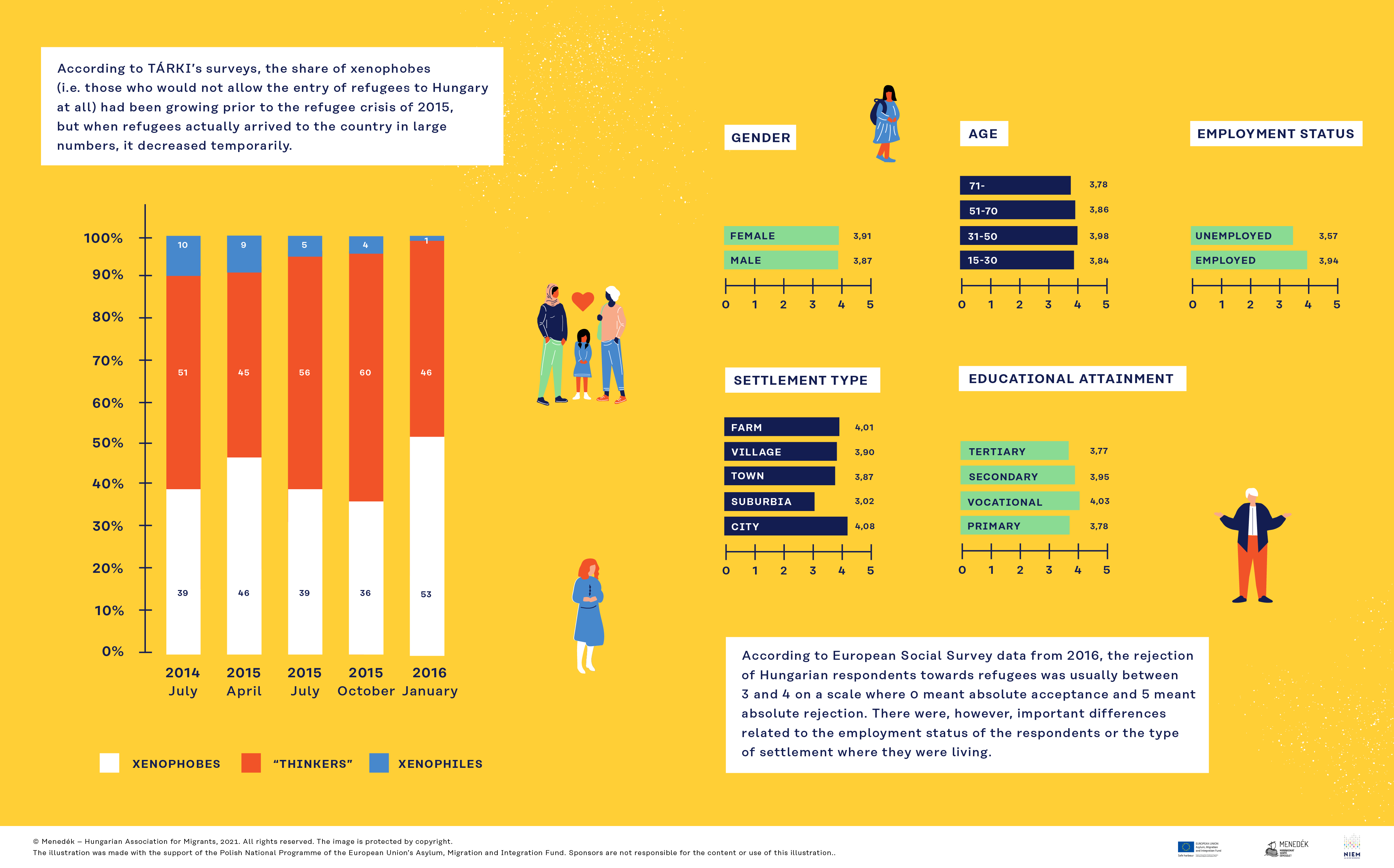
Although the proportion of xenophobia in Hungarian society has been growing steadily since 2010, in 2015 there was an interesting case. According to TÁRKI, when the large number of refugees actually arrived in the country, xenophobia temporarily decreased. The reason for this may have been that the Hungarian people saw the situation of the refugee families with their own eyes and began to feel solidarity. After most of the refugees left and the political discourse against refugees intensified, the proportion of foreigners increased again, and became even higher than ever before.
According to the data of the European Social Survey 2016, the rejection of Hungarian respondents towards refugees on a five-point scale usually took values between 3 and 4 (0 = absolutely not rejecting, 5 = absolutely rejecting), but important differences can be seen according to some factors. For example, whether the respondent has a job or where he or she lives and what level of education he or she has. Those who work have a higher rate of rejection of refugees, which may indicate fear of losing their job. People living in a suburban area are more inclusive than those living in other types of settlements. Those with the highest and lowest levels of education are somewhat more inclusive than those with intermediate levels of education.
